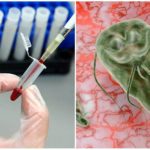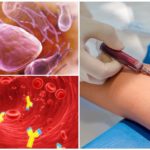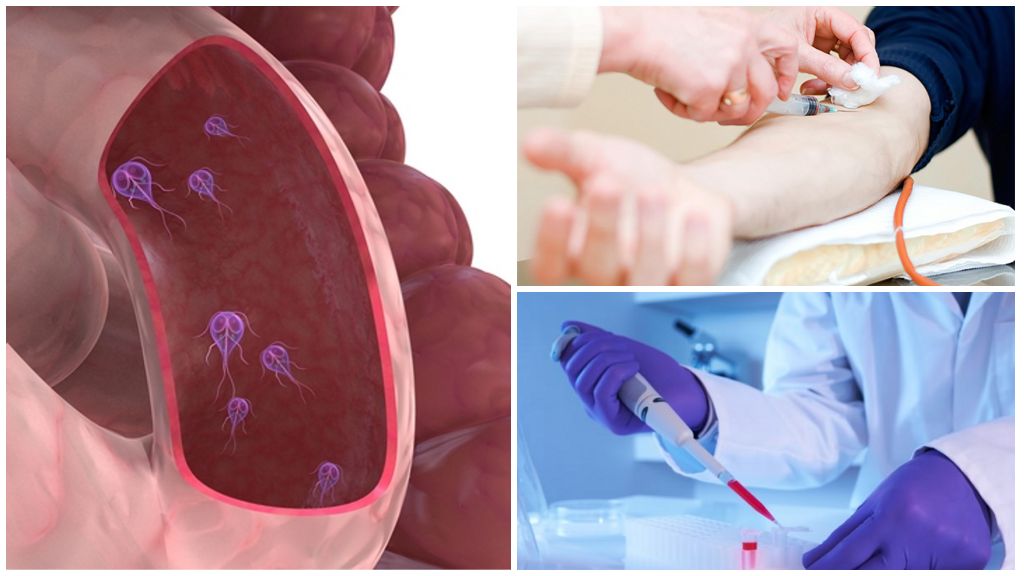Blood test for lamblia: what, how and where to pass, cost and decoding
Content
- Blood test for Giardia
- Blood test for Giardia
- Blood test for Giardia
Giardiasis gives people a lot of problems. The disease is asymptomatic for a long time and the person does not suspect that parasites appear inside. In order to increase the effectiveness of therapeutic methods and speed up patient's recovery, doctors recommend donating blood for lamblia.To avoid the development of giardiasis and its severe complications, it is necessary to regularly conduct blood tests. Therefore, it is important to understand which analysis needs to be passed, and in what case.
The need for blood tests for giardiasis
Symptoms that occur in a person who has giardiasis may be characteristic of many other diseases. Therefore, patients for a long time independently eliminate intermittent malaise, without affecting in any way the very cause of the disease and bringing the situation to a state of neglect. When making a diagnosis, doctors recommend a blood test for giardia in order to confirm the disease due to the high probability of diagnostic errors.
On a note!
Some manifestations are the basis to examine the blood on Giardia. This should be done if the patient is worried about frequent nausea, accompanied by vomiting, upset stool with a frequency of feces more than 10 times a day, as well as flatulence, which is associated with painful sensations in the intestine.
If such symptoms occur in a baby, then it is imperative to check the child for the presence of Giardia.This parasitosis occurs today quite often. Symptoms of giardiasis do not appear in the first three weeks after infection with parasites, but if you donate blood, the result will be clear already in this period.
Symptoms are often confused with a banal digestive disorder and begin to use traditional medicine to eliminate them, which entails delaying the disease and postponing the examination for several weeks.
How to be tested for Giardia
Patients also have questions about the preparation. First you need to get a referral from your doctor to identify parasites or worms. In the form issued by a specialist, it is indicated which immunoglobulins should be studied.
Some products from the patient's diet may affect the accuracy of the results. These are dishes prepared by smoking, salting or frying, as well as alcoholic beverages, mayonnaise, vinegar and sweet carbonated drinks. A couple of weeks before putting on the lamblia dough, you should eliminate such foods from your diet and enrich the daily menu with plenty of fresh vegetables and unsweetened fruits.
Important!
Blood to determine the parasites should be taken on an empty stomach. Allowed in the morning to drink a glass of water.
Three days before blood donation, it is better to stop taking all medications, especially if they have antibacterial effects. If there is no possibility to refuse drugs, then the lab worker should be notified. Some substances that are part of the drugs, can affect the definition of antibodies, which produces the patient's body. The number of cells can vary significantly.
If a person goes to donate blood for antibodies to lamblii, then he should reduce his physical activity as much as possible. Motor activity changes the composition of the blood, and the results of studies can be distorted. A laboratory technician takes blood from a vein. If earlier the patient had unexpected reactions according to the type of pressure change in the vessels or poor coagulability of the blood, then it is necessary to say this before taking the material.
Often the question arises as to how to donate blood to a child for the detection of parasites, are there any particularities of the process.But the blood test for atm in babies is done according to the same rules as described above for adults. The child on the eve of the study should not be stressed and subjected to x-ray examination.
ELISA analysis
The analysis on ELISA on lamblia determines the density of antibodies formed by the patient's body to this type of pathogen. The antibodies themselves are protein conglomerates of plasma, which are formed due to the influence of biological components that are foreign to the body. The normal functioning of the body's defense system depends on the number and type of antibodies formed.
On a note!
When Giardia enters the patient's body, class M antibodies appear in the blood, and after 14 days, the immunoglobulins G are added to them. The latter help the body fight the giardiasis causative agent. This species disappears from the blood after recovery no earlier than six months.
PCR analysis
The PCR method on Giardia uses a stool sample as the test material and shows the result in the case when the antibody analysis did not produce the expected result. It is recommended to do it as an additional study, in order to increase the reliability of diagnostic results.The method allows you to determine in the material the DNA fragments of Giardia and gives almost one hundred percent result.
IHG analysis
IHG on Giardia is a method for determining cysts, which allows you to collect the most accurate information about the presence of Giardia in the body. This analysis does not require compliance with diet and special training and works well in combination with the study of antibodies.
Research results
To understand whether Giardia is in the blood, it is necessary to correlate human antibodies and Giardia antigens. The result can be considered not only negative or positive, but also doubtful. The latter means that the best solution is to repeat the analysis.
Parents are interested in what is the norm lamblia in the blood of a child. Such a question is not entirely correct, since it is not the lamblia themselves that are determined, but the antibodies to them or immunoglobulins.
Important!
In a blood test, children may have type M antibodies that indicate an acute process. If in the presence of these cells there is no type G, then this means that the infection occurred no more than three months ago. If the decoding of a blood test showed that there are only G cells, then this indicates a transferred illness or carriage.
The amount of antibody titers varies depending on the laboratory, so only a specialist can judge whether a test is positive or negative. So after receiving the results should go to your doctor. Only he will explain whether lamblia were found in the blood, and what to do about it. It is better to always combine a blood test and other options for the detection of Giardia.
Where to get tested and how much is the survey on Giardia
Diagnosis of giardiasis is carried out both in government laboratories and in paid medical institutions. In the first embodiment, this is free, but with the cost of a temporary resource waiting in the queue. The alternative method does not require much time, but will affect the budget. Therefore, where it is better to pass the tests, everyone decides for himself, taking into account the factors described above.
How much blood is done for suspected giardiasis depends on the laboratory. It takes from 1 to 3 days, taking into account the design and issuance of results. Sometimes it should be repeated. The cost of analysis in Moscow laboratories average is 550 rubles.











